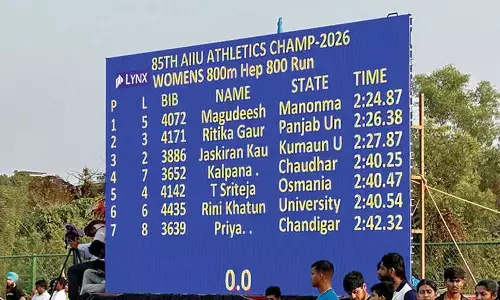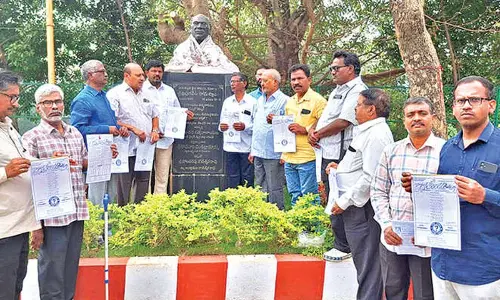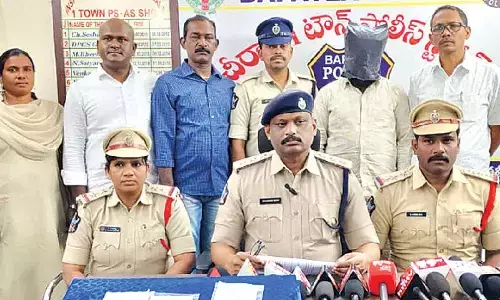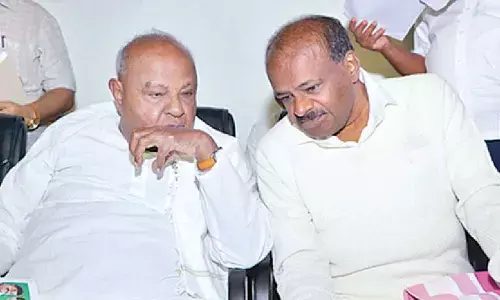AGI is public authority under RTI

What is public authority? For being a public authority the criterion specified in Section 2 (h) of RTI Act is enough, and there is no need to look to other yardsticks. This is most important part of the landmark judgment of Delhi High Court holding that the office of Attorney General of India (AGI) was a public authority.
What is public authority? For being a public authority the criterion specified in Section 2 (h) of RTI Act is enough, and there is no need to look to other yardsticks. This is most important part of the landmark judgment of Delhi High Court holding that the office of Attorney General of India (AGI) was a public authority. From common parlance, the AGI is a public authority, being a constitutional functionary.
Though it looked simple and doubtless, the question has been vexatious for a long time because the various authorities have started contending that they are not public authorities. This should also settle once and for all that Solicitor General of India and Advocate Generals of States are also public authorities. Section 2(h) is so specific that anybody constituted under Constitution is public authority. It is a surprise that such a simple proposition supported by specific provision of law in clear terms needed to be ascertained by higher courts. Common man also gets a doubt if this is a necessary litigation at all.
The AGI is established under Article 76 of the Constitution. Apart from acting as a lawyer for the Union Government, the AGI also has certain other privileges and functions; under Article 88, he has the right to take part in the proceedings of Parliament, besides performing certain statutory duties under the Contempt of Courts Act, 1971.
The higher courts held several times that the right to information is a fundamental right under Article 19(1) (a) and Delhi High Court again said that the RTI Act must be interpreted in furtherance of this fundamental right. The RTI activists and experts Subhash Chandra Agrawal and RK Jain took an ordinary RTI application into the decisive stage to be emphatically concluded. The citizens of this country hope authorities concerned will satisfy with the reasoning of Justice Vibhu Bakhru and respond to under RTI Act. When Jain and Agrawal sought some information, the office refused saying it had no ‘CPIO’.
The Central Information Commission held AGI as public authority. It referred to Som Prakash Rekhi v. Union of India and Anr (1981) 1 SCC 449 wherein it was held: When the person is an 'agent or instrument of the functions of the State' the power is public. So the search here must be to see whether the Act vests authority, as agent or instrument of the State, to affect the legal relations of oneself or others."
Quoting Sukhdev Singh v. Bhagatram: (1975) 1 SCC 421, the AGI said "authority" means power to alter the 'relations' or rights of others, and, none of the functions of AGI belong to the realm of authority. He is a single person without necessary infrastructure to have an RTI wing.
Being established under the Constitution, the conditions of service of the AGI are governed under the said Rules framed in exercise of the powers conferred by the proviso to Article 309 of the Constitution of India. The role of the AGI is not limited to be a lawyer for Centre; he is a constitutional functionary and obliged to discharge the functions under the Constitution as well as under any other law.
The Delhi HC refused to accept the contention of AGI that he has no ‘authority’ to alter the rights of others as explained by the Supreme Court in Sukhdev Singh and Som Prakash Rekhi cases. In these two cases the public nature of the activities being carried on by the statutory corporations and the Government companies, persuaded the Courts to hold them as 'other authorities' under Article 12 of the Constitution of India. In B P Singhal case, a Constitution Bench of the Supreme Court held the office of the AGI to be a public office. In this view also, the office of the AGI should be a public authority within the meaning of Section 2(h) of the RTI Act.
A Coordinate Bench of Delhi High Court in IFCI Limited v. Ravinder Balwani: (175) 2010 DLT 84 held that "Given the purpose and object of the RTI Act the only consideration is whether the body in question answers the description of a 'public authority' under Section 2 (h) of the RTI Act. There is no need to turn to the Constitution for this purpose, particularly when there is a specific statutory provision for that purpose."
The High Court further said, the term "authority" in Section 2(h) cannot be interpreted in a restrictive sense. The expression "authority" would also include all persons or bodies that have been conferred a power to perform the functions entrusted to them. Merely because the bulk of the duties of the AGI are advisory, the same would not render the office of the AGI any less authoritative than other constitutional functionaries.
There are various bodies, which are entrusted with 'staff functions' (i.e. which are advisory in nature) as distinct from 'line functions'. The expression "authority" as used in Section 2 (h) cannot be read as a term to exclude bodies or entities which are, essentially, performing advisory functions.
Justice Bakhru also said: “In my view… indisputably, the appointee to that office is, by virtue the Constitution, vested with the authority to discharge those functions… reference to the definition of an authority under Article 12 of the Constitution is not necessary in determining the scope of Section 2(h) of the RTI Act. The expression "authority" as used under Section 2(h) of the RTI Act, also necessarily takes colour from the context of the said Act. An office that is established under the Constitution would clearly fall within the definition of Section 2(h) of the RTI Act. Even in common parlance, the AGI has always been understood as a constitutional authority”.
By:Madabhushi Sridhar

















